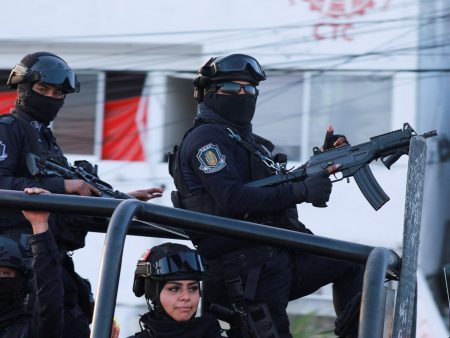Nearly 30 Planet Fitness locations across 11 states have been targeted with bomb threats since a customer was banned for raising concerns about a transgender individual using the women’s locker room. The first incident occurred in Fairbanks, Alaska, where a woman, Patricia Silva, was suspended for taking a photo of a transgender person shaving in the locker room. The franchise’s policy allows members to use facilities that align with their self-reported gender identity, resulting in Silva violating policy by taking photos in the locker rooms.
Following the incident in Fairbanks, multiple businesses received bomb threats claiming that bombs had been placed inside a Planet Fitness location. However, police investigations found no evidence of explosives, leading authorities to deem the threats as false. The outrage over this incident spread online, leading to more Planet Fitness locations being targeted with fake bomb threats. Locations in Rhode Island, Michigan, Mississippi, Alabama, Florida, Virginia, Maryland, and Kansas were among those affected, along with gyms in Connecticut.
Gym-goers have expressed frustration over the unnecessary evacuations caused by these bomb threats. While some expressed concern for their safety, others maintained that it was unnecessary and ultimately harmful to innocent individuals. Despite the threats and disruptions caused by the evacuations, some members are still planning to continue using the gym, referring to it as a “Judgment Free Zone” and a great place to work out. It is evident that the incident has caused divisions among patrons, with some feeling that the threats were unjustified and others expressing greater caution about returning to the gym.
The response to the bomb threats at Planet Fitness locations has sparked a wider conversation about safety and inclusivity in public accommodations. The incident has raised questions about how businesses can ensure the safety and comfort of all patrons, especially in spaces like locker rooms where privacy and security are vital. The franchise’s policy of allowing members to use facilities based on their self-reported gender identity has come under scrutiny, with critics questioning whether it adequately addresses the concerns of all members, including those who may feel uncomfortable with sharing spaces with transgender individuals.
Authorities are continuing to investigate the bomb threats at Planet Fitness locations and to ensure the safety of patrons and employees. The incidents highlight the potential consequences of discrimination and intolerance in public spaces, underscoring the importance of creating spaces that are welcoming and inclusive for all. As the investigation into the bomb threats continues, it is essential for businesses to consider how their policies and practices can promote safety, respect, and understanding among all patrons, regardless of their gender identity or background. The incidents at Planet Fitness locations serve as a poignant reminder of the ongoing challenges faced by transgender individuals and the importance of creating a society that is accepting and supportive of all.














